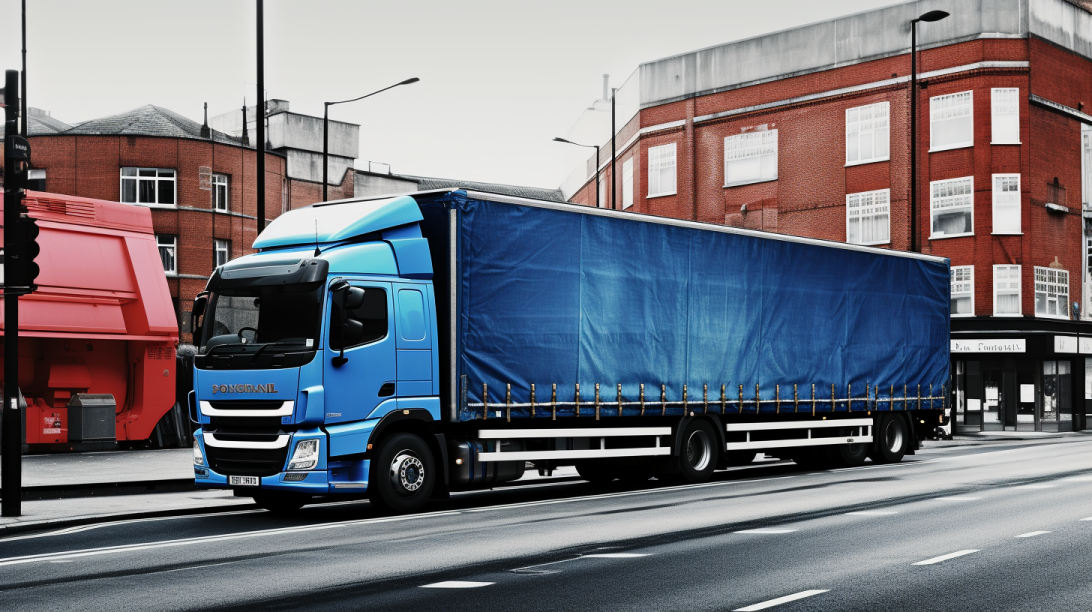Photo was created by Webthat using MidJourney
Have you ever glanced at the long haulage lorries that dominate the roads of the UK and wondered about their cargo? Food, fuel, furniture—these are some of the things that might come to mind. However, what if I told you that a startling one in three of these colossal vehicles is cruising the roads without any cargo whatsoever?
The issue of empty lorries is more significant than meets the eye, and it’s a problem that’s affecting not only the economy but also the environment. In this article, we’ll delve into the depths of this issue, understand its global scope, and explore the ingenious solutions that are revolutionizing the haulage industry.
The Invisible Load: Understanding the Scale of the Problem
The enigma of empty lorries isn’t just confined to the UK—it’s a global quandary. In the European Union, one out of every five lorries on the road is empty, and in the United States, that number hovers around 15%. This seemingly innocuous phenomenon, however, bears hefty consequences. These empty miles translate into costs that don’t bring in any revenue—a particularly painful dilemma in times of escalating fuel prices. Not only that, but road freight is accountable for a staggering 53% of CO2 emissions within global trade-related transport, adding another layer to the urgency of addressing this issue.
The Birth of Innovation: Breathing New Life into the Haulage Industry
In a world where technology has infiltrated nearly every facet of our lives, the haulage industry often lags behind. But pioneers like Clemente Theotokis, the co-founder of Zeus, a digital freight management firm, are here to rewrite the narrative. Theotokis and his partner Jai Kanwar recognized the glaring inefficiencies in the industry and decided to take matters into their own hands. They established Zeus—an innovative platform connecting hauliers with local businesses in need of transportation.
Related Reading: FlyAkeed: Revolutionizing Business Travel with a $15.2 Million Boost
A Paradigm Shift: Zeus and the Race Against Empty Runs
Every day, approximately 150,000 trucks hit the road without a payload. Theotokis attributes this wastage to the industry’s outdated manual practices. Zeus’s intervention seeks to revolutionize this by providing a digital marketplace that showcases available lorries, all managed seamlessly through web and mobile applications. This not only streamlines operations but also significantly reduces paperwork—a Herculean feat in the traditional haulage landscape.
Skepticism and Challenges: Navigating the Road Ahead
While innovation beckons, some in the industry remain cautious. Jordan Shelvey, a director at Shelvey Haulage, underscores the intricacies of the job that might not align with digital systems. Unforeseen delays, setbacks, and accidents—the realities of the road—can be tough to account for in an algorithm. For many like Shelvey, personal touch and word of mouth remain pillars of their coordination strategies.
Glimpses of a Transformative Future: Electrification and Digitization
The road haulage industry is on the cusp of transformative change. Electrification of vehicles is gathering momentum, and digitization is offering new avenues for efficiency. However, the industry faces challenges—predicted to transport more than double the current international freight volumes by 2050. As the network’s capacity remains constant, addressing issues like empty running becomes paramount.
Related Reading: Lively Business Buzz in Lubbock: Openings, Closures, and Delicious Ventures
Beyond Borders: Collaborative Solutions and Environmental Impact
Collaboration emerges as a beacon of hope in the fight against empty runs. Innovators like Jack Fleming, the founder of Chill-Chain, have developed software that connects shippers and haulage companies, allowing for fuller loads and reduced wastage. By consolidating deliveries and enabling manufacturers to visualize their entire road supply chain, the industry takes a step toward greater sustainability.
The Road Ahead: Toward an Automated Tomorrow
As the haulage industry inches toward automation, positive change seems inevitable. Automation not only benefits truckers but also manufacturers. The synergy between these stakeholders, coupled with innovative technologies, promises a future where empty lorries will be a rarity rather than a norm.
Final Thoughts
The problem of empty lorries resonates far beyond the highways. It’s a complex issue with global repercussions, touching the economy, the environment, and the very fabric of the haulage industry.
However, innovative solutions are forging a new path—one that’s more efficient, environmentally conscious, and economically viable. By embracing technology, collaboration, and forward-thinking, the road ahead might just lead us to a world where empty lorries are nothing more than a distant memory.


